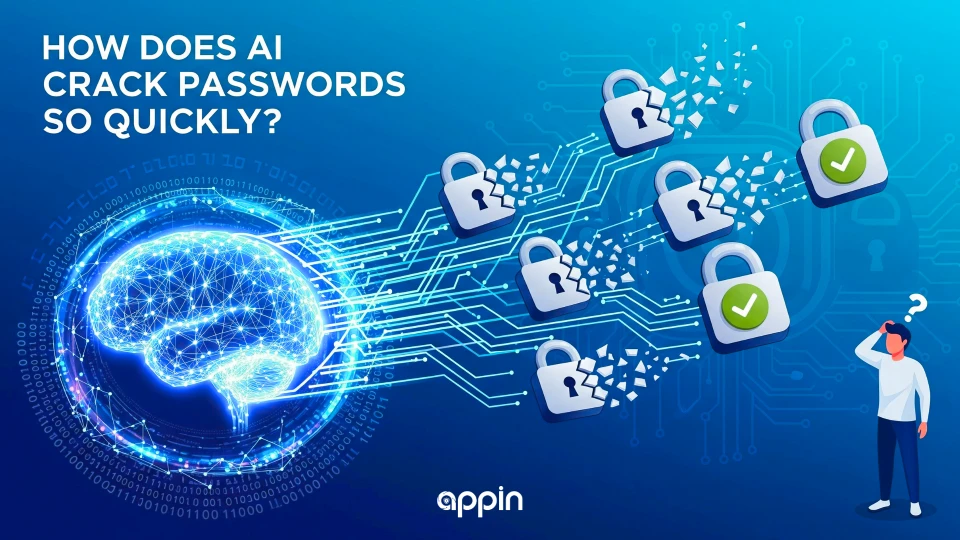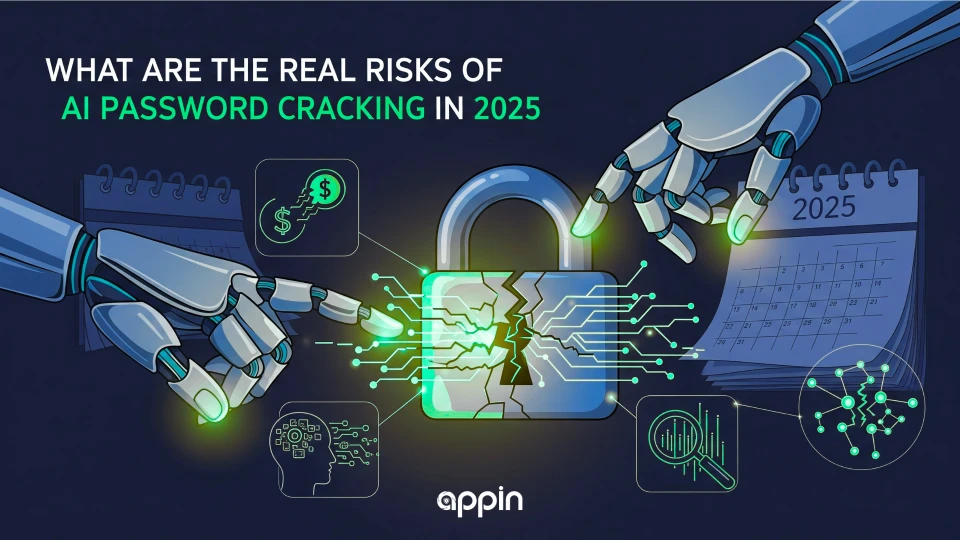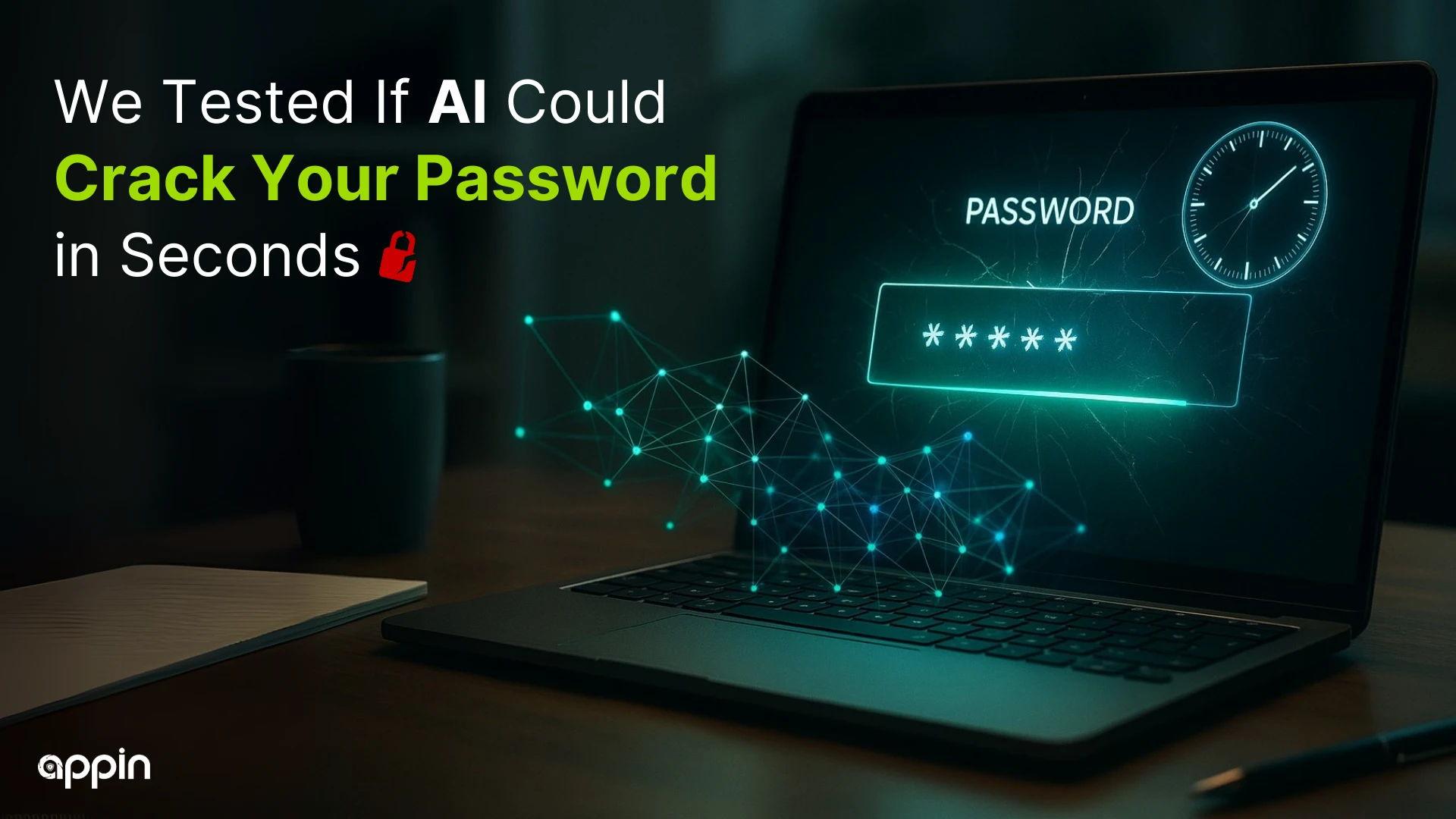Can AI Really Crack Your Password in Seconds?
Yes, AI can crack weak passwords in seconds, but strong and unique ones still take years to break. AI crack your password techniques use machine learning and brute-force to test billions of combinations quickly.
Simple passwords like “123456” or “password” are cracked almost instantly, which is why reports of instant hacks often circulate.
However, the reality is different for strong passwords. A 12-character password with a mix of symbols, numbers, and letters may take decades or even centuries to crack. AI is powerful, but it cannot bypass math and complexity.
In 2025, password cracking 2025 research shows that hackers rely on leaked databases and AI tools like PassGAN to guess patterns. The lesson is simple: weak passwords are a gift to attackers, but strong, unique ones remain safe. Students should remember that securing accounts starts with better password practices.
How Does AI Crack Passwords So Quickly?
AI cracks passwords quickly by predicting patterns from leaked data and running brute-force attacks at incredible speed.
Modern AI password cracking tools learn from billions of stolen credentials available on the dark web. These datasets allow machine learning models to identify common behaviors in how people create passwords. For example, AI learns that many users add “123” at the end or use birthdays as part of their password.
Key methods include:
- Wordlists and Dictionaries: AI-enhanced lists of common passwords that attackers test first.
- PassGAN: A generative model that creates realistic new passwords based on what real people use.
- Brute Force with AI: Instead of testing random combinations, AI guesses more likely passwords first, saving time.
These techniques drastically reduce the time needed for an attack. A weak password may fall in seconds, while a moderately strong one could take hours or days instead of months.
But there is an important truth. While AI makes cracking faster, it still depends on the quality of the password. Strong, unique passwords remain resistant, even to advanced tools.
For students and professionals, understanding how AI cracks passwords is the first step toward protecting themselves. By knowing the tools attackers use, you can adopt habits and tools that keep accounts secure.

Which Passwords Are the Easiest for AI to Break?
Simple, reused, or short passwords are the easiest for AI to crack.
Weak passwords 2025 research shows that common ones like “123456,” “qwerty,” or even names and birthdays are instantly breakable. These appear in almost every leaked dataset, which means AI tools can guess them within seconds. The problem grows when users recycle the same password across multiple accounts, allowing one breach to unlock everything.
Here are examples of passwords AI cracks fast:
- Short passwords under 8 characters.
- Common words like “welcome” or “football.”
- Personal details such as your name, birthday, or phone number.
- Patterns like “abcd1234” or “111111.”
Why are these so weak? AI does not waste time on random guesses. It learns human habits, so it always tries the most predictable patterns first. A simple password is therefore not just weak, it is an open invitation.
Common password mistakes also include slight variations of popular words, such as “Password1” or “Summer2025.” Even if these look complex, AI can spot and predict them instantly.
For students and fresh professionals, the takeaway is simple. If your password is short, common, or reused, AI will break it without effort. To stay secure in 2025, stronger habits are no longer optional.
How Long Would AI Take to Crack a Strong Password?
Complex, long, and unique passwords can take years or even centuries for AI to crack.
When we ask, can AI crack strong passwords, the answer is technically yes, but not quickly. The more characters and variety you add, the more time AI tools need to attempt every possible combination. This is why password length and diversity matter more than ever.
Examples of password strength comparisons:
- 8 characters, only lowercase letters → cracked in seconds.
- 10 characters, mix of upper and lowercase → hours or days.
- 12 characters, mix of letters, numbers, and symbols → decades or longer.
- 16 characters, fully random mix → could take centuries, even with advanced AI.
Strong vs weak passwords come down to complexity. While weak ones are instantly broken by AI, strong ones remain resilient. Even AI password cracking tools cannot shortcut mathematics.
For students preparing for cybersecurity careers, this knowledge is empowering. It shows how attackers think and how small changes in your habits can drastically improve your defenses. Strong passwords combined with additional protections, such as multi-factor authentication, ensure that AI stays on your side, not against you.
What Are the Real Risks of AI Password Cracking in 2025?
The risks of AI password cracking in 2025 include stolen accounts, identity theft, and financial fraud.
AI password cracking risks are rising as tools become faster and more accessible. Attackers no longer need months to guess passwords; weak ones can be exposed in seconds. This puts social media, email, and banking accounts in India at constant risk.
Key dangers to know:
- Account Takeover: Hackers can lock you out of your own accounts and misuse them.
- Identity Theft: Personal data from cracked accounts may be sold on the dark web.
- Financial Loss: Banking apps and digital wallets are prime targets.
- Reputation Damage: Social media accounts can be hijacked to post harmful content.
The dangers of AI cracking are not just technical but also legal. Victims of compromised accounts can face misuse of their data, and those experimenting with cracking illegally can face criminal charges.
Students and early-career professionals need to treat password safety as a priority. The combination of stolen data, faster AI, and phishing scams makes 2025 one of the most challenging years for online security.

How Can You Protect Your Passwords from AI?
You can protect your passwords from AI by making them longer, unique, and securing them with multi-factor authentication.
Password security tips include:
- Use a password manager to generate and store complex passwords.
- Create strong passwords of at least 12–16 characters, mixing symbols, numbers, and letters.
- Enable 2FA or MFA on all important accounts, such as banking and email.
- Avoid reusing passwords across platforms, since one breach can expose everything.
- Regularly update passwords if you suspect a leak or breach.
To protect from AI password attacks, think about habits that reduce risk. For example, a password like “Appin@2025Secure!” is far stronger than “password123.” Attackers will always target the weakest link, and in most cases, that is human carelessness.
Students interested in cybersecurity should study why AI cracks weak passwords so easily. Ethical hacking courses teach how to test passwords in labs, but also how to defend against these threats in real environments. Staying safe is not about fear, but about preparation.
What’s the Ethical Way to Learn About AI and Password Cracking?
The safe way to learn about AI and password cracking is through structured ethical hacking training, not by experimenting illegally.
Beginners can study how AI tools work in controlled labs and simulations that mimic real attacks. This allows students to understand vulnerabilities without breaking laws. Learning in an organized setup also ensures you gain practical skills that employers value.
Appin offers multiple learning paths designed for this:
- Cyber Security Certification for foundational security knowledge.
- C|EH v13 Ethical Hacker Course for penetration testing and advanced skills.
- Bug Bounty Diploma for hands-on experience in identifying vulnerabilities.
Ethical training keeps you on the right side of the law while preparing you for real jobs in cybersecurity. Choosing this path shows responsibility and builds credibility in your career.
Should You Worry About AI Cracking Your Password?
Yes, you should worry if you rely on weak passwords, but strong ones combined with multi-factor authentication are still safe against AI.
In 2025, AI crack your password tools are faster than ever, which means short and simple passwords are no longer an option. The difference between seconds and centuries of protection depends on how you create and manage your credentials.
The key lessons:
- Weak vs strong passwords determine your risk.
- AI has limits when faced with long, complex, unique passwords.
- Safe learning comes from ethical courses, not illegal attempts.
Appin reminds students that security is about awareness and action. By upgrading your habits and training legally, you can turn AI into a tool for defense, not a threat.
👉 Enquire now with Appin to start learning how to defend against AI-powered threats.


